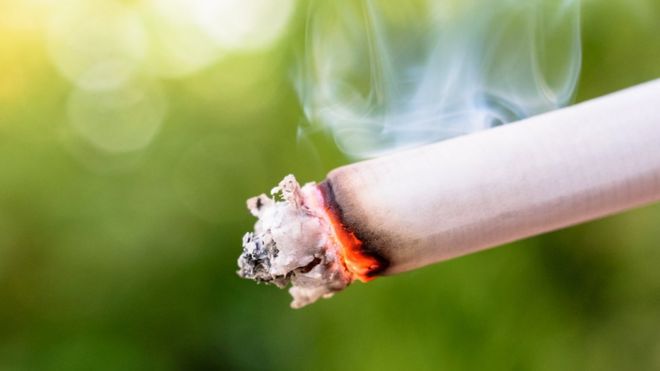Health
Related: About this forumSmokers Past And Present 'Live In More Pain'
People who smoke, and even those who have given up, report living in more pain than those who have never picked up the habit, a report suggests, BBC News, Jan. 1, 2020.
The findings are based on an analysis of data from more than 220,000 people conducted by UCL. The researchers say the reason why is unknown, but could include smoking causing permanent changes in the body. The anti-smoking campaign group Ash said the findings should not come as a surprise given the dangers of smoking.
Scientists were analysing data from a set of online experiments in the BBC Lab UK Study, in which people took part between 2009 and 2013. They were sorted into three categories:
◾never smoked daily
◾used to smoke daily
◾or currently smoke daily
They were asked how much pain they lived in and this was converted into a scale from zero to 100. Higher scores meant more pain. Current and former smokers scored about one to two points higher than those who had never smoked, the study in the journal Addictive Behaviors showed. In other words, smoking was linked to living in more pain - even after quitting.
"The key finding is the former smokers still see that effect of elevated pain," one of the UCL researchers, Dr Olga Perski, told the BBC.

She added: "It is a very large data set. We've got a good sample, so we can be fairly confident there is something going on here. "But we can't say whether that's clinically meaningful," And Dr Perski said the most surprising finding was that the higher levels of pain were found in the youngest ages groups (aged 16 to 34). What is going on? There is no definitive explanation for why this effect might exist. One proposed idea is that some of the thousands of chemicals in tobacco smoke may lead to permanent tissue damage, resulting in pain. Another is that smoking could have a lasting effect on the body's hormonal systems.
This suggestion specifically centres around the hypothalamic-pituitary-adrenal axis (HPA-axis), which is involved in how we respond to pain. If the HPA-axis is knocked out of balance then it could lead to people feeling more pain.
But there remains the possibility that smoking is the symptom and not the cause.
◾Pledge to end smoking in England by 2030
◾Smoking 'damages eyes as well as lungs'
◾Smoking: Lack of progress on teenage rate 'shocking'
For example, studies have linked the neurotic personality trait to feeling more intense pain and a higher risk of smoking. So is could be that, on average, the type of person who is more likely to report having more pain is also the type of person who is more likely to start smoking. "This is certainly an issue that needs looking into," said Dr Perski.
However, she said the latest study fitted in with previous research linking smoking with chronic pain and with back pain...
More, https://www.bbc.com/news/health-50813228
*DU, Smoking Cessation Group, https://www.democraticunderground.com/?com=forum&id=1153
wryter2000
(46,081 posts)With that huge sample, the results are statistically significant, but how big is the effect? One to two percent. As one of them noted, probably not clinically significant.
Lots of other good reasons not to smoke.
appalachiablue
(41,171 posts)to think pain is part of the draw, rather than the result, based on the people I've known.
Anyway, good luck to those deciding 2020 is the year to quit.
> "the higher levels of pain were found in the youngest ages groups (aged 16 to 34). What is going on? There is no definitive explanation for why this effect might exist."
wryter2000
(46,081 posts)It's tough, but so worth it. These days, you'll save tons of money as well as doing good for your health
Midnight Writer
(21,795 posts)That doesn't seem very significant. Self reporting pain levels can be awfully subjective, and one to two points is very small difference.
Nitram
(22,877 posts)nocoincidences
(2,229 posts)Current and former smokers scored about one to two points higher than those who had never smoked,
And this reached a statistical level of significance?
I need more explanation of the value of the numbers in the scale.